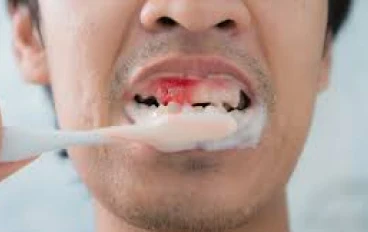
Top Tips for Preventing Prostate Cancer
Prostate cancer is one of the most common types of cancer among men, but the good news is that there are several ways to reduce the risk of developing this disease. By making informed lifestyle choices and staying vigilant about your health, you can take proactive steps to protect your prostate. In this comprehensive guide, we'll explore top tips for preventing prostate cancer, covering everything from diet and exercise to regular screenings and stress management.
Understanding Prostate Cancer
?What is Prostate Cancer
Prostate cancer occurs when cells in the prostate gland grow uncontrollably. The prostate is a small, walnut-shaped gland located below the bladder and in front of the rectum. It plays a crucial role in producing seminal fluid, which nourishes and transports sperm. Prostate cancer can develop slowly and remain confined to the prostate, but in some cases, it can be .aggressive and spread to other parts of the body
Risk Factors for Prostate Cancer
:Several factors can increase the risk of developing prostate cancer, including
- .Age: The risk increases significantly after age 50 <
- .Family History: Having a close relative with prostate cancer doubles your risk <
.Race: African American men are at a higher risk compared to men of other races <
.Diet: High-fat diets and obesity can contribute to the development of prostate cancer <
Diet and Nutrition for Prostate Cancer Prevention
Eat a Balanced Diet
A healthy diet is essential for overall well-being and can significantly reduce the risk of prostate cancer. Incorporate a variety of fruits, vegetables, whole grains, and lean proteins into your meals.
Fruits and Vegetables
Fruits and vegetables are rich in vitamins, minerals, and antioxidants that can help protect against cancer. Aim to include a colorful array of produce in your diet, such as:
.Tomatoes: Rich in lycopene, a powerful antioxidant<
.Broccoli: Contains sulforaphane, which may have cancer-fighting properties<
.Berries: Packed with antioxidants that help neutralize harmful free radicals<
Healthy Fats
:Not all fats are bad. Focus on healthy fats that can benefit your prostate health, such as
.Omega-3 Fatty Acids: Found in fatty fish like salmon, mackerel, and sardines <
.Olive Oil: A great source of monounsaturated fats <
Limit Red and Processed Meats
Diets high in red and processed meats have been linked to an increased risk of prostate cancer. Instead, opt for lean protein sources like poultry, fish, beans, and legumes.
Maintain a Healthy Weight
Obesity is a known risk factor for many cancers, including prostate cancer. Maintaining a healthy weight through a balanced diet and regular exercise can lower your risk.
Exercise Regularly for Prostate Cancer Prevention
Benefits of Physical Activity
Regular physical activity not only helps maintain a healthy weight but also improves overall health. Exercise can help reduce inflammation and boost your immune system, both of which play a role in cancer prevention.
Types of Exercise
:Incorporate a mix of aerobic, strength training, and flexibility exercises into your routine
.Aerobic Exercise: Activities like walking, running, and swimming improve cardiovascular health <
.Strength Training: Lifting weights or doing body-weight exercises strengthens muscles and bones <
.Flexibility Exercises: Yoga and stretching improve flexibility and reduce stress <
Regular Screenings and Check-Ups
Importance of Early Detection
Early detection of prostate cancer significantly improves the chances of successful treatment. Regular screenings can help detect cancer at an early stage when it is most treatable.
Prostate-Specific Antigen (PSA) Test
The PSA test measures the level of prostate-specific antigen in the blood. Elevated levels can indicate the presence of prostate cancer, but they can also be caused by other conditions like prostatitis or benign prostatic hyperplasia (BPH). Discuss with your doctor the appropriate age to start PSA testing based on your risk factors.
Digital Rectal Exam (DRE)
During a DRE, a doctor inserts a gloved, lubricated finger into the rectum to check the size, shape, and texture of the prostate. This test can help identify abnormalities that may indicate cancer.
Avoid Smoking and Limit Alcohol
The Impact of Smoking
Smoking is a major risk factor for various types of cancer, including prostate cancer. The harmful chemicals in cigarettes can damage DNA and promote the growth of cancer cells. Quitting smoking can significantly reduce your risk and improve overall health.
Alcohol Consumption
Excessive alcohol consumption has been linked to an increased risk of several cancers. To reduce your risk, limit alcohol intake to moderate levels – up to one drink per day for women and up to two drinks per day for men.
Manage Stress for Prostate Cancer Prevention
Stress and Prostate Health
Chronic stress can negatively impact your immune system and overall health, potentially increasing the risk of cancer. Finding healthy ways to manage stress is crucial for maintaining prostate health.
Stress Management Techniques
:Incorporate stress-reducing activities into your daily routine, such as
.Meditation: Practicing mindfulness and deep breathing exercises <
.Physical Activity: Regular exercise can help reduce stress levels <
.Hobbies: Engaging in activities you enjoy can provide a mental break and reduce stress <
Get Enough Sleep for Prostate Health
The Role of Sleep in Cancer Prevention
Quality sleep is essential for overall health and well-being. Poor sleep patterns can disrupt hormone levels and weaken the immune system, increasing the risk of cancer.
Tips for Better Sleep
Ensure you get enough restorative sleep by:
.Maintaining a Regular Sleep Schedule: Go to bed and wake up at the same time every day <
.Creating a Relaxing Bedtime Routine: Avoid screens before bed and create a calm sleep environment <
.Limiting Caffeine and Alcohol: Avoid consuming these substances close to bedtime <
Stay Informed and Engaged
Education and Awareness
Staying informed about prostate cancer and proactive in your health can make a significant difference. Attend health seminars, read up-to-date information, and engage in discussions with your healthcare provider.
Support Groups and Community Involvement
Joining a support group or community organization focused on prostate health can provide valuable resources and emotional support. Sharing experiences and advice with others can be empowering and motivating.
Conclusion
Preventing prostate cancer involves a holistic approach that includes a healthy diet, regular exercise, routine screenings, and lifestyle changes. By staying informed and proactive, you can significantly reduce your risk and improve your overall well-being. Remember, small changes can make a big difference in your health. Start today by incorporating these tips into your daily routine and take charge of your prostate health.
Together, we can work towards a future where prostate cancer is preventable and manageable. Stay vigilant, stay healthy, and don’t forget to laugh and enjoy life along the way. Here's to a healthier, cancer-free future!































